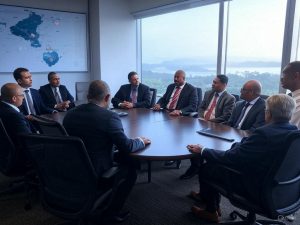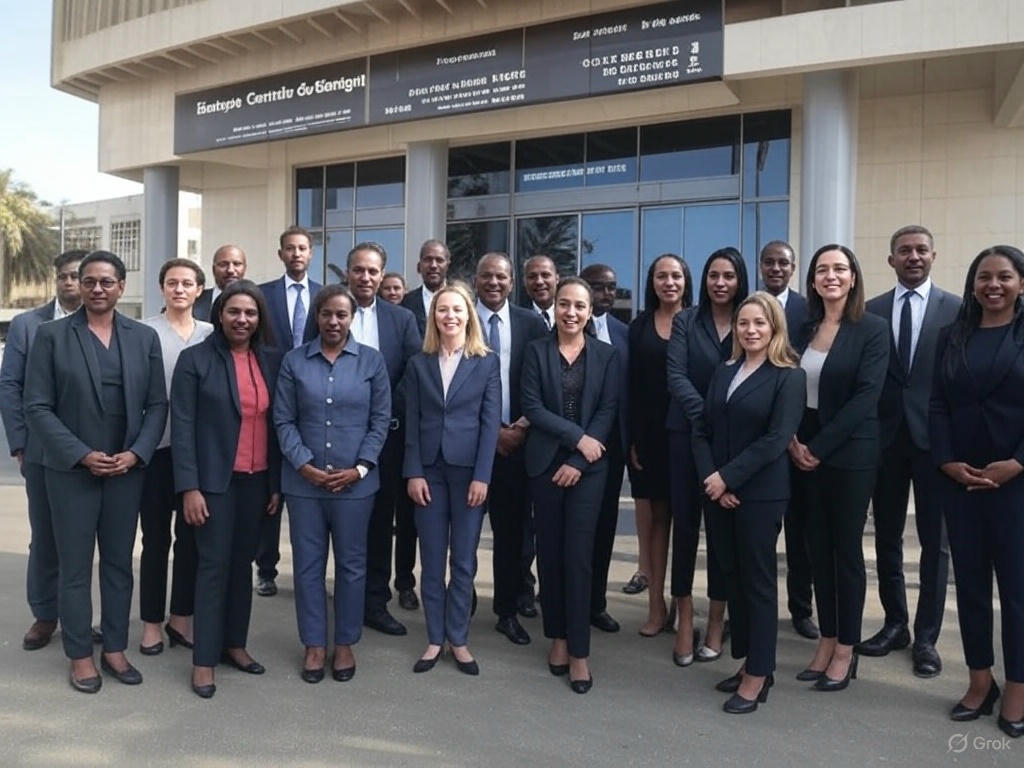Suva, Fiji
The International Monetary Fund wrapped up its 2025 Article IV consultation with Fiji on Tuesday, forecasting a slowdown in the Pacific island nation’s economic growth to 3% next year from an estimated 3.75% in 2024, as the post-pandemic tourism boom levels off. The mission, led by Alasdair Scott, urged the Fijian government to rebuild fiscal buffers and accelerate structural reforms to bolster resilience against global headwinds and natural disasters.

The team had fruitful discussions with the Deputy Prime Minister and Minister for Finance, Strategic Planning, National Development, and Statistics, Biman Prasad, the Governor of the Reserve Bank of Fiji, Ariff Ali, other senior government officials, development partners, and private sector representatives. The team would like to thank the Fijian authorities for their excellent cooperation and hospitality.
In a statement from Suva, Scott highlighted the economy’s continued recovery but cautioned that growth is nearing its ceiling. “Tourist arrivals are reverting to pre-pandemic trends, and rising regional competition is pressuring earnings per visitor,” he said. “Over the medium term, without bolder policy shifts, growth will settle below the pre-COVID average of 3.3%.” The IMF sees hotel capacity expansion and tourism diversification as key supports, but downside risks loom large—think trade frictions, weaker foreign demand, and Fiji’s exposure to cyclones.
The fund’s recipe? A fiscal overhaul targeting a 2% primary surplus by 2030 to tame high public debt, paired with a shift from current spending to infrastructure investment. Monetary policy, still loose from pandemic days, should tighten to neutral, while exchange restrictions ease gradually. On the structural front, the IMF doubled down on modernizing utilities, upgrading transport and digital networks, and tackling labor shortages through education and higher female workforce participation.
Fiji’s current account deficit, projected to hold at 7% of GDP, and thinning FX reserves underscore external vulnerabilities. Yet, there’s upside potential: faster reforms could lure more foreign direct investment and lift growth, a point Scott pressed in meetings with Deputy Prime Minister and Finance Minister Biman Prasad and Reserve Bank Governor Ariff Ali.
The talks, spanning March 12-25 across Suva and Nadi, also touched on banking stability—solid for now, though consumer credit growth bears watching—and anti-money laundering efforts, where gaps persist. Private sector voices and development partners echoed the need for a business-friendly pivot, with recent wins like online permit systems offering a glimmer of progress.
Fiji’s government has yet to respond publicly, but the IMF’s playbook sets the stage for tough choices ahead. With climate financing and infrastructure on the line, the stakes couldn’t be higher for this tourism-dependent economy.




